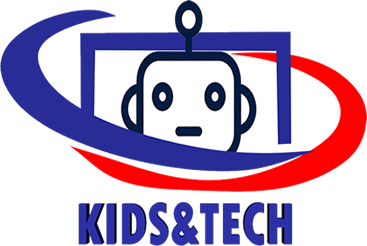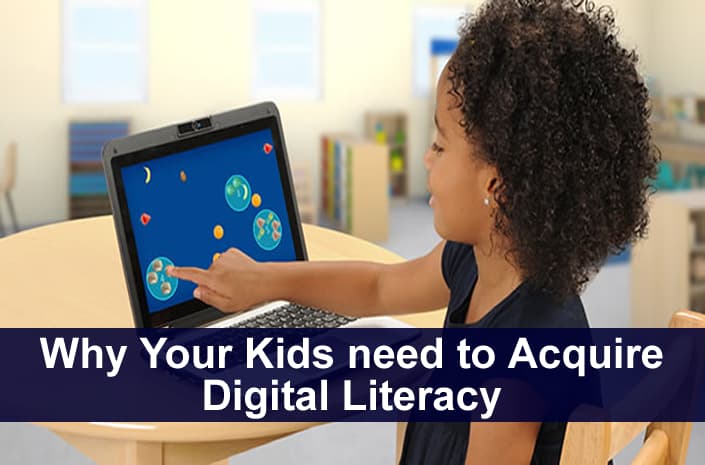Top 5 STEM Skills kids should learn in Nigeria
You’ve likely heard the term STEM, but what does it stand for? STEM is an acronym for science, technology, engineering, and math.
These four fields all share an emphasis on innovation, problem-solving, and critical thinking. Together, they make up a popular and fast-growing industry.
This is important to understand because getting a math degree doesn’t necessarily mean you completed a STEM program, even if math is a STEM subject. Without the integration of all four disciplines and the use of real-world teaching methods, you don’t get the educational benefits that make STEM degrees so valuable and careers in STEM fields so desirable.
Do you think your kid might be interested in a career in STEM?
Here is an ample opportunity to know the necessary top skills that he/she can learn.
Science, technology, engineering, and math AKA STEM not only underpins the economy but also our general well-being. If you thought STEM was just about coding and lab coats, you’re in for a surprise.
It is the foundation of manufacturing, food production, health care, and so much more. The bottom line – ouchid depends on STEM.
Now that you know the bright prospects of your child’s career in STEM, you might want to inspire them as early as possible.
But the real question is just what skills do students need today to excel and pursue a career in STEM in the future? Well, as parents, you will have to instil a mix of ‘soft’ and traditional academic skills – ranging from creativity to statistics – often inadvertently undervalued by educators. Here are five such skills:
- Problem-Solving: The notion of modern skills binds together the STEM movement. Hiring managers everywhere expect their employers to know problem-solving; society needs it; doing your tax requires problem-solving.
This is one skill that really matters. Any practicing engineer would confidently reveal that learning calculus to solve problems on paper doesn’t come to use in real life but the way it teaches one to solve problems and to think about them is really important. Problem solving skill will form a good basis for child all round development.
2. Creativity: One skill that is simple and complex at the same time, is creativity. Thinking out of the box isn’t always taught. One needs to look at a problem from a different perspective every now and then.
As parents, you can nurture this by asking open-ended questions. Showing different science and math models to your child can push them to come up with varying ideas of what it means to bring together one idea. Or don’t show a model at all and let them think of a solution of their own without any restrictions.
Questions like ‘Why do you think this is?’ can help them reflect on what they did to solve a problem. This self-explanation can ignite creativity and collaboration in them.
3. Argumentation
Arguing is not always bad – while your kids must refrain from baseless, behavioural debates – in STEM fields, using evidence to support a claim can prove to be a crucial practical Skills.
Reasoning lets your kids use analytical and critical thinking skills to observe patterns in data, understand what that pattern means, and then to use it to back an assertion.
For example, let your kids have varied experiences with noisemakers – from tuning forks to speakers to whoopee cushions – which helps them collect data right in elementary school.
And they will be able to use this data to put their abstract thought to good use and deduce that sounds are caused by vibrations.
4. Statistics
This one specific skill applies across all STEM fields. Not higher levels of calculus or physics are needed for all STEM careers, but statistics.
Deep diving into statistics lets kids explore probability and error rates – models that cleave to any type of problem they will need to solve in STEM.
5. Intellectual Curiosity
Gone are the days when people used to stick the same role in an organization for years. Millennials are preferring modern career paths – ones that involve short stints in one role and moving on to another one.
They are not just interested in mastering content but are also training to be innovators, learn from failures and keep moving on.
Cutting across disciplines and asking questions that help networking is something every kid looking for a career in STEM should know how to do. And intellectual curiosity can help them be lifelong learners and try to figure things out in all walks of professional and personal lives.
Conclusion
STEM-readiness is about much more than general tech-savvy; it’s about developing a repertoire of skills and mindsets that maximize each child’s options for their future.
Whether your child is looking to get started with STEM or level-up their skills, these skills are key to unlocking both in-demand careers and lifelong learning


Thanks for your blog, nice to read. Do not stop.
Good post. I learn something totally new and challenging on sites I stumbleupon everyday. It will always be helpful to read content from other writers and practice a little something from other websites.